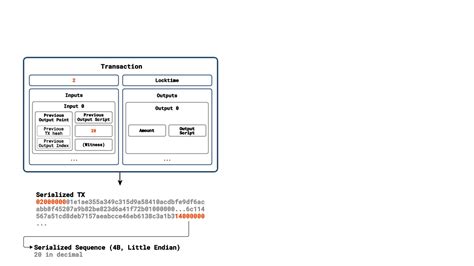- تاریخ انتشار : پنجشنبه ۲۵ بهمن ۱۴۰۳ - ۲۰:۰۶
- کد خبر : 1472 چاپ خبر
Ethereum: What does OP_CHECKSEQUENCEVERIFY (OP_CSV) do?
Harnessing the Power of Ethereum: Understanding OP_CHECKSEQUENCEVERIFY Ethereum’s decentralized and programmable blockchain has changed the game for developers, allowing them to build complex applications and smart contracts. A key feature that enables this flexibility is the use of custom opcodes in the Ethereum Virtual Machine (EVM). Among these opcodes is OP_CSV, also known as OP_CHECKSEQUENCEVERIFY.
Harnessing the Power of Ethereum: Understanding OP_CHECKSEQUENCEVERIFY
Ethereum’s decentralized and programmable blockchain has changed the game for developers, allowing them to build complex applications and smart contracts. A key feature that enables this flexibility is the use of custom opcodes in the Ethereum Virtual Machine (EVM). Among these opcodes is OP_CSV, also known as OP_CHECKSEQUENCEVERIFY.
What does OP_CHECKSEQUENCEVERIFY do?
OP_CHECKSEQUENCEVERIFY is a special opcode used to verify the sequence field in a transaction on the Ethereum network. When used for a transaction, this opcode ensures that the sequence field is sorted and processed correctly by validator nodes. This feature is especially useful for transactions with large or complex sequences.
Why use OP_CSV?
Before the introduction of OP_CSV, developers relied on external libraries or scripts to handle sequence verification. However, this approach had its limitations:
- Lack of control: Developers had limited control over the sequence field when signing transactions.
- Security risks

: Without proper validation, sequence fields could be corrupted or altered during transmission.
OP_CSV addresses these issues by providing a secure and transparent way to manage sequences. Using this opcode, developers can ensure that their sequences are accurate and consistent across all nodes in the network.
Why is it useful?
OP_CSV is particularly valuable in the following scenarios:
- High-throughput applications: When processing a large volume of transactions, OP_CSV helps maintain sequence integrity and prevents errors.
- Immutable data storage: In applications that require long-term data storage, such as non-fungible tokens (NFTs) or decentralized finance (DeFi) protocols, OP_CSV provides an accurate representation of data.
Can the signer choose the sequence field?
In theory, yes. The signer can control the sequence field by signing a transaction using a specific private key or wallet. However, in practice, this approach has several limitations:
- Security risks: Signers can inadvertently introduce errors or manipulate the sequence field when creating a transaction.
- Consensus issues: Different wallets or signers may have different preferences for sequence ordering, thus creating inconsistencies.
Conclusion
OP_CSV is a powerful feature that unlocks the full potential of Ethereum’s programmability and scalability. By providing accurate sequence verification, developers can build reliable and robust applications on the network. While there may be some limitations to using OP_CSV, its benefits far outweigh these drawbacks. As the Ethereum ecosystem continues to evolve, it will be exciting to see how this opcode is integrated into new use cases and applications.
لینک کوتاه
برچسب ها
- نظرات ارسال شده توسط شما، پس از تایید توسط مدیران سایت منتشر خواهد شد.
- نظراتی که حاوی تهمت یا افترا باشد منتشر نخواهد شد.
- نظراتی که به غیر از زبان فارسی یا غیر مرتبط با خبر باشد منتشر نخواهد شد.
ارسال نظر شما
مجموع نظرات : 0 در انتظار بررسی : 0 انتشار یافته : 0